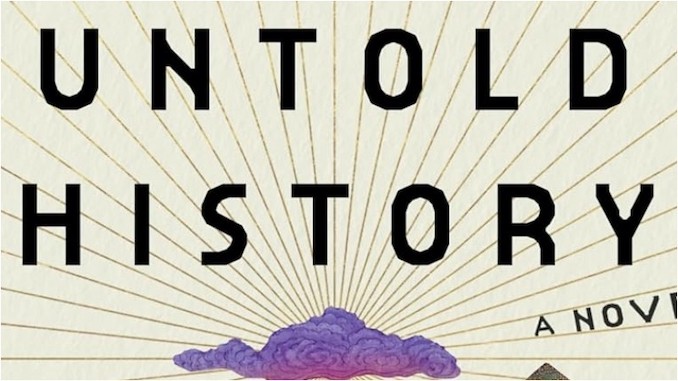Blending Stories Across Time in The Melancholy of Untold History

A storyteller faces certain death. A historian falls into a deep depression after the loss of a loved one. And four gods play out a conflict in life after life, regardless of the number of years they spend in their war. These tales blend together, weaving in and out of each other in a dance of myth, history, and personal narrative, in Minsoo Kang’s powerful debut novel, The Melancholy of Untold History.
Opening with an unnamed storyteller, the novel launches readers into a specific historical moment, as a group of people face execution by an uncaring emperor, for no reason they can fathom. Before the introduction concludes, an unnamed historian gives a lecture before having dinner with his wife, a colleague, and her boyfriend. While the historian’s life seems idyllic, at least during that captured moment, disaster strikes: his wife, the love of his life, dies senselessly in an accident, leaving him to make sense of a world without her in it. The first chapter launches into a seemingly unrelated myth: four gods who are the best of friends have a falling out over a perfect peach, their ensuing conflict the result of a curse placed on them by two divine figures: a sky baby and a dragon. As the book progresses, it weaves in and out of time, not only by revisiting the myth of the four mountain gods—who themselves move through history battling each other, long after their purpose is forgotten—but by uncovering how the historian’s career intersects with the storyteller’s life. The mystery of those people headed for execution is revealed through the historian’s own publications; the historian’s life is reframed by the tale of the four gods, who were inventions of the storyteller in the first place. These threads that at first seem wholly unrelated are revealed as completely interwoven—and tropes that seem at once familiar, especially from a Western lens, are recontextualized by each story’s relation to the others.
All of this is elevated by Kang’s gorgeous prose, which moves from literary to crass sometimes within the same sentence. Early on, when the sky baby is first laying his curses on the Red Mountain God, he insults him, calling him, “you stingy old bastard, you flaccid pig’s dick, you donkey’s dirty anus.” But these base moments—many of which are played, successfully, for humor—contrast with the luminous.
The historian philosophizes on the idea of “pristine perfection,” an idea that plays out later, through other characters, as well:
-

-

-

-

-

-

-

-

-

-

-

-

-

-

-

-

-

-

-

-

-

-

-

-

-

-

-

-

-

-

-

-

-

-

-

-

-

-

-

-








































